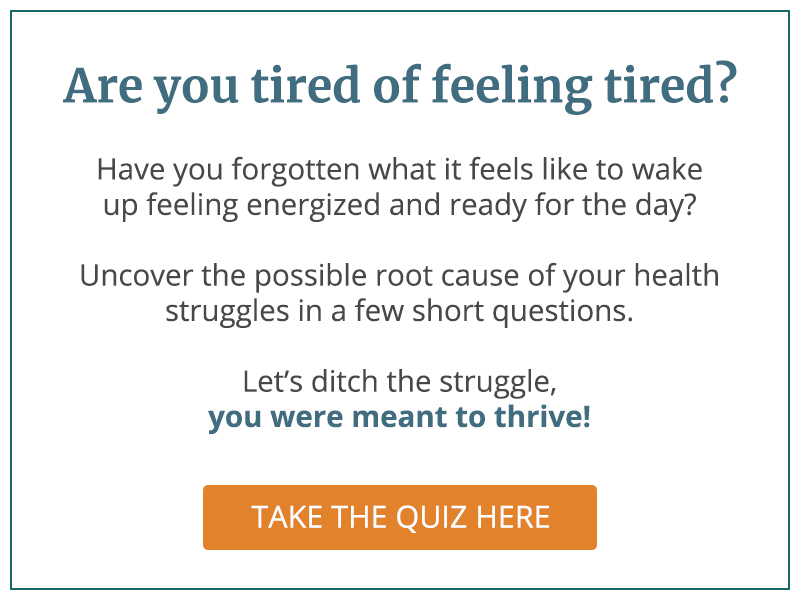The brain is certainly one of your most precious resources. And since it’s something we definitely want to protect, it’s crucial to have an effective game plan in place for optimizing your brain health. It probably comes as no surprise to learn that what you eat can have a profound impact on your brain’s health. Just like the right diet can help to protect your heart, certain foods can help protect your brain, too. But which foods are the best foods for brain health?
The great news is, in general, the same anti-inflammatory foods that are good for the rest of your body are also good for your brain.
Let’s take a look at which ones to eat (and which to avoid!) if you want to keep your brain firing on all cylinders for a long time to come.
Best Foods For Brain Health
Whole foods, fruits, and vegetables that are rich in heart and gut healthy antioxidants and anti-inflammatory compounds are brain-protective as well.
So that means for the most part, if you prioritize eating a “Mediterranean-inspired” diet, you’re doing something good for your body, from the top of your brain down to your toes. A Mediterranean diet includes lots of vegetables, fruits, nuts, seeds, truly whole grains, and smaller amounts of high-quality animal protein. These types of foods have shown to keep chronic inflammation at bay — which is a key driver of common brain complaints.
Conditions like brain fog, depression, and even Alzheimer’s disease have been linked to inflammation…so it stands to reason that keeping levels of inflammation lower can help your brain function better.
Some of the best inflammation fighting foods are also the best foods for brain health.
Topping the list are:
Omega 3s
Omegas are brain health superstars. They have been studied for many years for their ability to fight inflammation and prevent brain related disorders like Alzheimer’s disease. Studies indicate that people who eat more omega-rich fish are less likely to develop dementia and Alzheimer’s disease. I recommend that everyone try to get in some type of Omega 3 to their diet every day.
Omega 3’s are found in:
- Fatty fish, like sardines, mackerel, and salmon
- Flax seeds
- Chia seeds
- Walnuts
You can also find Omega 3s in supplements like fish oil and flax oil.
Antioxidants
Antioxidants are compounds that fight oxidative stress — a process that occurs when there are more free radicals (those pesky, unstable atoms that damage cells and cause signs of aging, including memory loss) in the body than there are antioxidants.
The idea that consuming antioxidant-rich foods can help fight off free radicals is not new, but focus on how antioxidants can protect your brain and possibly prevent brain disease is more recent.
Studies have shown a correlation between vitamin E levels and cognitive ability.
Powerful, brain-protective antioxidants like vitamin E, vitamin C, vitamin D, carotenoids, flavonoids, beta-carotenes, polyphenols, and tocopherols can be found in:
- Berries
- Broccoli
- Pumpkin seeds
- Nuts
- Oranges
- Bell pepper
- Olive oil
- Eggs
- Tomatoes
- Beets
- Dark, leafy greens
Some ways to squeeze in antioxidant supplementation include: Vitamin D, Vitamin C, and resveratrol.
Magnesium
Magnesium is an important brain boosting mineral — that most people are deficient in. Magnesium has been shown to help memory stay sharp and boost overall cognitive function.
Magnesium can be found in:
- Spinach
- Beans
- Nuts
- Seeds
- Brown rice
Can’t get enough of these foods regularly? Try supplementing with magnesium, but take it at night to help drifting off to sleep a bit easier.
Other Anti-Inflammatories
Other anti-inflammatory, brain-loving compounds are found in many of the foods I recommend adding into your diet on a daily basis.
Some of my favorites include:
- Turmeric
- Green tea
- Ginger
- Cinnamon
If you can’t add these foods into your diet regularly, you’ve also got the option to take them in supplement form, too. Curcumin, derived from turmeric, and theanine, made from green tea, are both popular supplement choices.
Food That Is Bad For Your Brain
So now that we’ve covered some of the best food choices for brain health, let’s talk about some of the worst choices.
Topping the list of sub-optimal brain foods are:
- Sugar: Higher levels of glucose are suspected to be a risk factor for dementia
- Artificial sweeteners: Animal studies suggest that consumption of aspartame can impair memory.
- Saturated fat: Excess saturated fat in the diet can lead to poor memory and thinking, as suggested in a study of over 6,000 women.
- Alcohol: Some studies suggest that even moderate alcohol consumption can lead to cognitive decline.
- Sodium: In a study done on mice, excess salt consumption led to tau accumulation in the brain — which is a hallmark of Alzheimer’s disease.
Other Important Brain Health Activities
If you’re looking to protect your brain, eating as many anti-inflammatory foods (and staying away from inflammatory ones) is a phenomenal start…but there are a few other things you can do as well to help build up your brain power and help prevent issues in the future.
Exercise
It’s just as important to make sure you move your body as it is to eat right for brain health. Studies show that regular exercise affects your cognitive abilities and also improves blood flow to the brain.
Sleep
While your body rests during sleep, your brain performs critical housekeeping functions that may help remove toxins from the brain on a nightly basis. So when you skimp on sleep, you’re not only jeopardizing your ability to think clearly and focus on tasks the next day, you could also be compromising your brain health long term.
Lower Stress
While it may be easy to see how acute traumatic stress can affect brain function, chronic stress can do a number on your brain health as well. Stress can actually shrink neurons, and in turn impair learning and memory. It’s best to learn how to reduce your self-imposed stress and save your brain while you’re at it.
Protecting Your Brain Health
There’s plenty of evidence to suggest that eating plenty of brain-healthy foods, getting lots of exercise, prioritizing sleep, and lowering stress can help you have a myriad of improved health outcomes in so many ways — including brain health.
But sometimes, sneaky symptoms like brain fog and fatigue just creep up on you…and then it’s so much harder to find healing because your brain is compromised!
Figuring out the root cause of your symptoms is so much easier with a partner who can objectively evaluate you and point you in the right direction.
Wondering where to start?
Take my quiz below to begin finding the answers:
References
“Brain foods: the effects of nutrients on brain ….” https://www.ncbi.nlm.nih.gov/pmc/articles/PMC2805706/.
“Food, Mood, and Brain Health: Implications for the Modern Clinician.” https://www.ncbi.nlm.nih.gov/pmc/articles/PMC6170050/.
“Link between inflammation and mental sluggishness … – ScienceDaily.” 15 Nov. 2019, https://www.sciencedaily.com/releases/2019/11/191115190337.htm.
“Inflammation linked to Alzheimer’s disease … – ScienceDaily.” 2 Sep. 2020, https://www.sciencedaily.com/releases/2020/09/200902114455.htm.
“Inflammation as a central mechanism in Alzheimer’s disease.” 6 Sep. 2018, https://www.ncbi.nlm.nih.gov/pmc/articles/PMC6214864/.
“Inflammation in Alzheimer Disease—A Brief Review of the Basic ….” https://www.ncbi.nlm.nih.gov/pmc/articles/PMC3253025/.
“The Role of Inflammation in Depression and Fatigue – NCBI – NIH.” 19 Jul. 2019, https://www.ncbi.nlm.nih.gov/pmc/articles/PMC6658985/.
“Fish, meat, and risk of dementia: cohort study – NCBI – NIH.” 7 May. 2002, https://www.ncbi.nlm.nih.gov/pmc/articles/PMC130057/.
“Dietary intake of fatty acids and fish in relation to cognitive … – PubMed.” https://pubmed.ncbi.nlm.nih.gov/14745067/.
“Neuroprotective Effect of Antioxidants in the Brain – NCBI – NIH.” 28 Sep. 2020, https://www.ncbi.nlm.nih.gov/pmc/articles/PMC7582347/.
“Effects of Vitamin E on Cognitive Performance during Ageing and in ….” https://www.ncbi.nlm.nih.gov/pmc/articles/PMC4276978/.
“Magnesium supplement helps boost brainpower — ScienceDaily.” 2 Feb. 2010, https://www.sciencedaily.com/releases/2010/01/100127121524.htm.
“Glucose Levels and Risk of Dementia | NEJM.” 8 Aug. 2013, https://www.nejm.org/doi/full/10.1056/nejmoa1215740.
“Studies on the effects of aspartame on memory and … – PubMed.” https://pubmed.ncbi.nlm.nih.gov/23280025/.
“Moderate alcohol consumption as risk factor for adverse brain ….” https://www.bmj.com/content/357/bmj.j2353.
“Dietary salt promotes neurovascular and cognitive dysfunction ….” 15 Jan. 2018, https://www.nature.com/articles/s41593-017-0059-z.
“Physical Activity and Brain Health – NCBI – NIH.” 17 Sep. 2019, https://www.ncbi.nlm.nih.gov/pmc/articles/PMC6770965/.
“The Neuroprotective Aspects of Sleep – NCBI – NIH.” https://www.ncbi.nlm.nih.gov/pmc/articles/PMC4651462/.
“Effects of stress hormones on the brain and cognition: Evidence from ….” https://www.ncbi.nlm.nih.gov/pmc/articles/PMC5619133/.


